by JuliannaKunstler.com
Materials: printed picture, transparency, foil, oil pastels, turpentine & Q-tip, tortillon
STEPS

1. Image search: Find a high quality photograph of an organic object: plant, animal, fish, etc. Do not choose a complicated and detailed picture - oil pastels are not great at details.
Do not use: drawings/paintings/designs by other artists. No logos or writings.
Save the image to the desktop (not the thumbnail, but the full-size photograph). You can do it by dragging it onto the desktop.
2. Editing in Photoshop: Right-click on your image. Choose Open with > Adobe Photoshop

Simplify and reduce the colors of the photograph and increase the contrast of the picture.
You can do it by applying an Artistic filter. Depending on the colors of your particular image, choose:
Filter >Filter Gallery>Artistic >
• Cutout
• Dry brush
• Fresco
• Paint Daubs
• Palette Knife
• Poster Edges
• Smudge Stick
• Watercolor
Apply any of the above filters. Try different settings for each filter to keep the details but simplifying the colors.

File > Print
• Choose HP LaserJet 5550 printer
• Select Landscape or Portrait layout
• Check “Scale to fit Media”

Now place a transparency onto the picture. (Inkjet transparencies work better as they have a rough side - oil pastels will stick better to it - place it the rough side up). Tape the corners securely. Use Sharpies (any colors) and trace the details in the picture.
You can slide in a blank piece of paper to see the progress:

After the ink is completely dry - use oil pastels and try to match the colors of your shapes with the photograph.
You can gradate the colors or use flat shapes. Use a tortillon to blend/mix colors. You can also use turpentine or baby oil to "water down" the pastels.
The light would go through the "watered down" or blank areas and reflect from the foil in the background to give an interesting effect.

